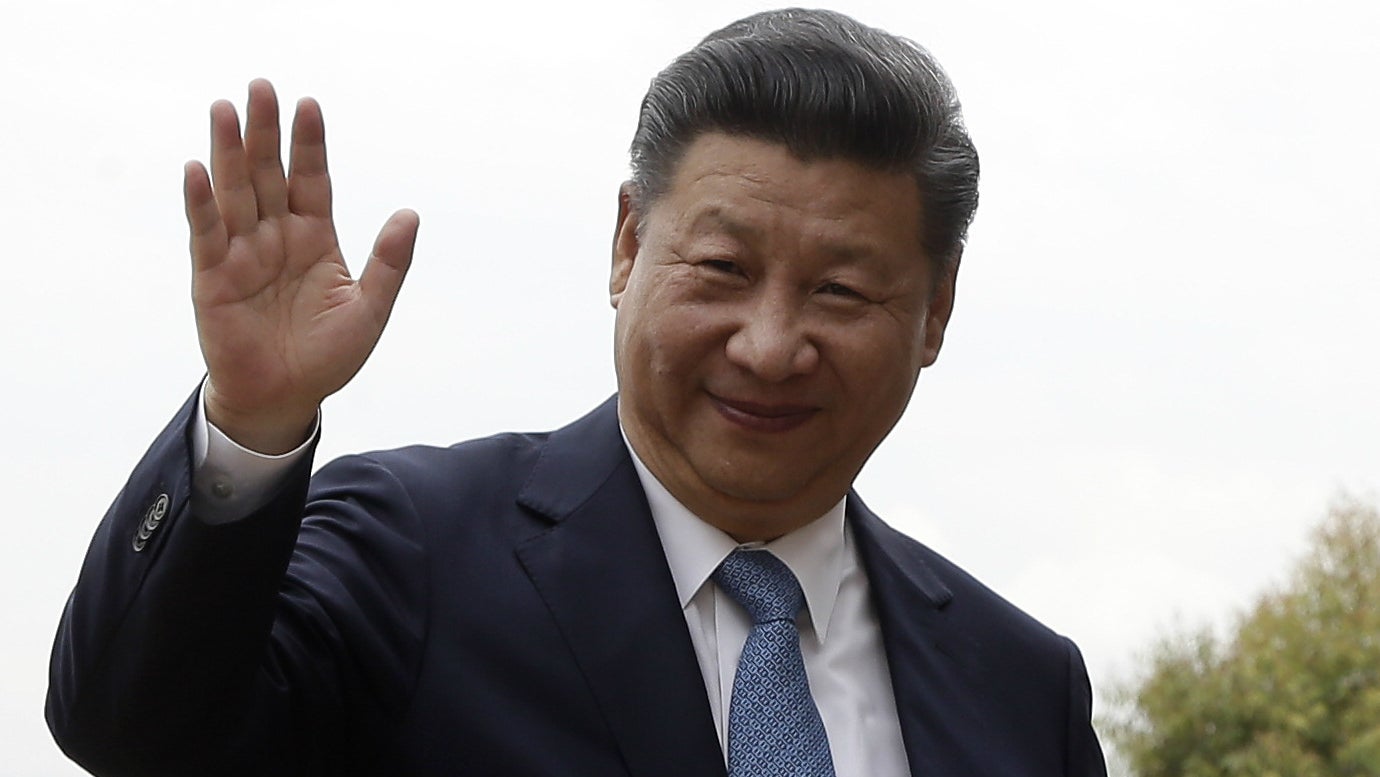Xi Jinping will be the first Chinese president to schmooze with the global elite at Davos
This January, as Donald Trump is being sworn in, something else unprecedented will be happening across the Atlantic: Chinese president Xi Jinping will be yukking it up in Davos, at the annual meeting of the World Economic Forum, reports the Financial Times. (A WEF spokesman declined to confirm Xi’s attendance at the event.)


This January, as Donald Trump is being sworn in, something else unprecedented will be happening across the Atlantic: Chinese president Xi Jinping will be yukking it up in Davos, at the annual meeting of the World Economic Forum, reports the Financial Times. (A WEF spokesman declined to confirm Xi’s attendance at the event.)
Xi will be the first Chinese president to attend the global elite schmooze-fest, which runs Jan. 17-20, at which powerful politicians and captains of industry mull the big global issues of the day at a ski resort in the Swiss Alps. And the moment is certainly ripe, says Elizabeth Economy, Asia studies director at the Council on Foreign Relations.
“I think it is a very smart and strategic move to send Xi Jinping to Davos,” says Economy. “The World Economic Forum will offer a very hospitable environment for Xi that will enable him to make the case that China is ready to lead on the critical internationalist agenda that WEF promotes.”
It’s a curious moment in global economics and politics for Xi—who in his three-year tenure has centralized more power than any Chinese president since perhaps Deng Xiaoping—to make his maiden visit to Davos. Trump’s election victory, the Brexit referendum, and the rise of European center-right parties represent a backlash against global elite authority and the multilateralist challenge to national sovereignty—in other words, much of what Davos stands for. For that reason, it seems unlikely that—even without the inauguration happening on Jan. 20, the last day of the Davos forum—Trump or his proxies would attend. (The Trump transition team has not responded to Quartz’s request for comment.)
The announcement also comes at a pivotal time in defining the US’s global status. Trump’s campaign rhetoric suggests an American leadership style that projects power through unpredictability and aggression, and not through multilateral pacts or leading by example. Already, Trump’s positions on trade and climate change seem likely to create an opening for China to wrest away influence over regional and international agreements.
And China has shown itself plenty eager to jump into any void created by an American retreat from the world stage. Xi has pushed hard for what the Communist Party sees as China’s rightful place as a responsible stakeholder on global issues. In its spearheading of the Asian Infrastructure Investment Bank, its One Belt One Road program, its successful campaign to win the yuan a place in the IMF’s official currency basket, and even the Bo’ao Forum, China’s answer to Davos, China has framed itself as an alternative to the US-led world order.
But even as the media talk up China as the new standard-bearer for internationalism, it’s important to remember that China has demonstrated little real leadership on global issues, says CFR’s Economy.
“Where China is leading—by establishing the Asian Infrastructure Investment Bank and One Belt, One Road, for example—is in areas clearly designed to serve its own direct economic and political interests,” she says. “That is not to say that these institutions cannot be beneficial for other countries, but that China has not demonstrated the interest or capacity to serve as a leader in crafting global responses to the world’s most pressing problems such as climate change, refugees, or terrorism.”